Turkmenistan cultural tour, mysteries of the desert
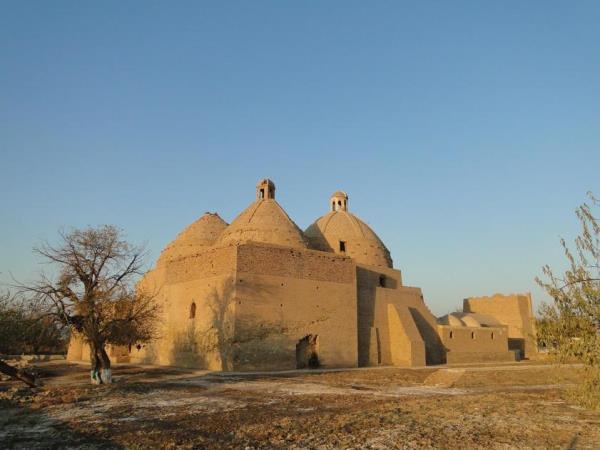
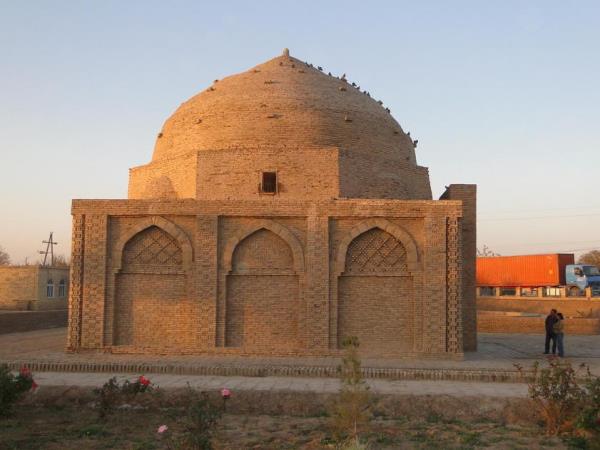
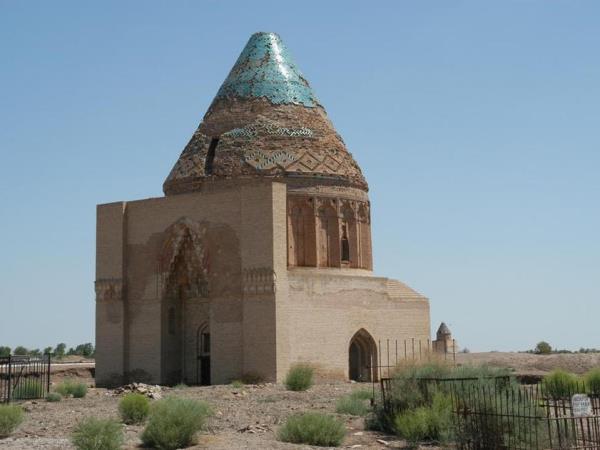
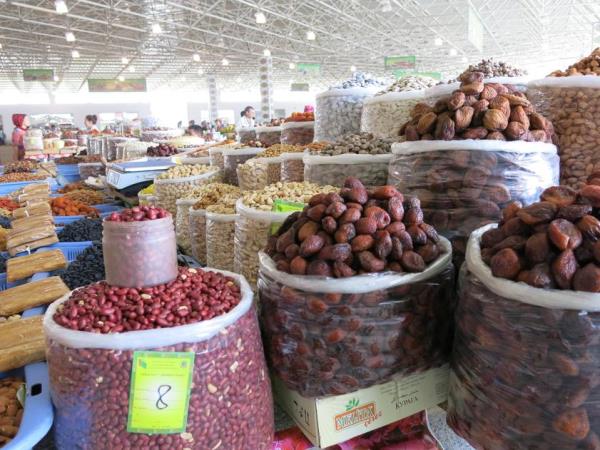
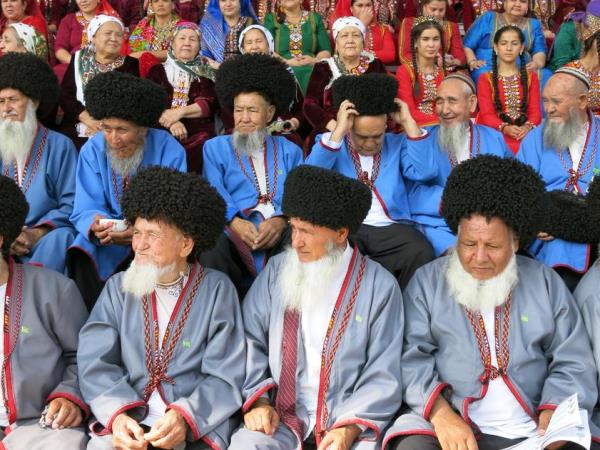
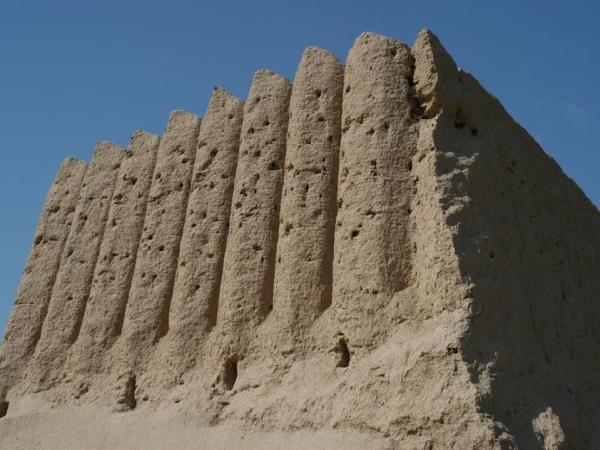
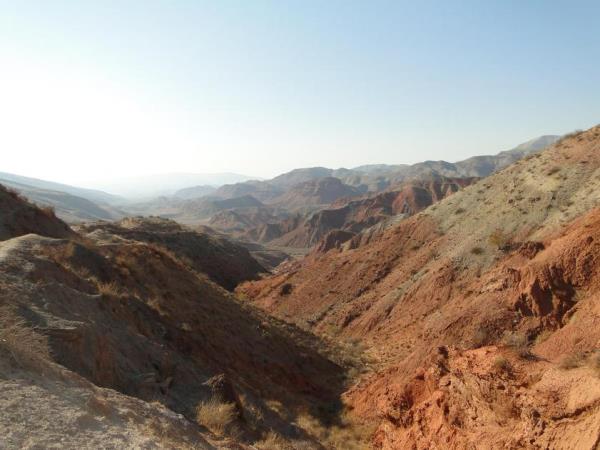
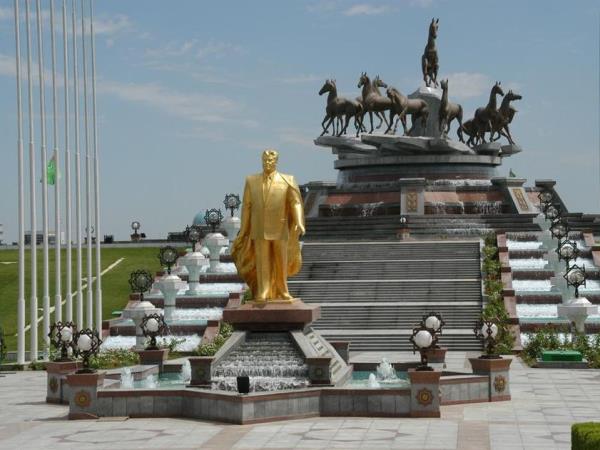
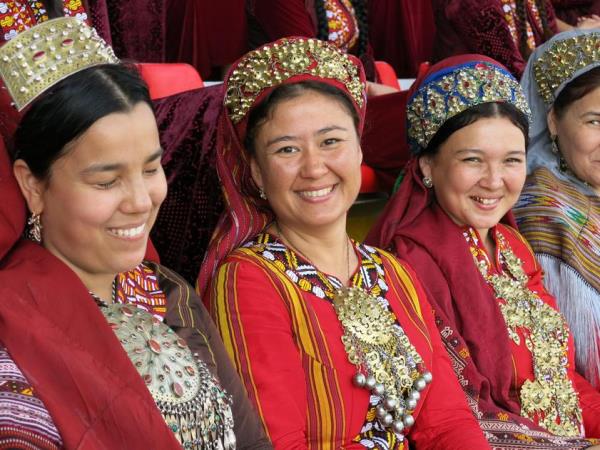
Description of Turkmenistan cultural tour, mysteries of the desert
This Turkmenistan cultural tour takes you to a country on the edge of the legendary Silk Road; a land swathed in harsh desert, rich in history and culture and little visited by foreign tourists. Once the preserve of fierce tribesmen, today the country is full of contrasts, where modern, vibrant cities exist alongside remote tented communities; and this two-week trip allows you the chance to delve a little deeper into its mysteries.
Kicking off your journey in Ashgabat, you’ll visit both modern monuments and historical relics, including the ancient Parthian fortress of Nisa, before heading for the wild countryside beyond. In the mountain town of Nohur, you’ll spend time with a local community that is said to be descended from Alexander’s mighty armies, before making your way through the otherworldly canyons and valleys of Yangikala to Gozli Ata, a remote site where we spend the night in the company of local pilgrims.
Your next stop is the Caspian Sea, where you’ll relax in the seaside resort of Awaza before boarding a plane for Dashoguz to visit the UNESCO listed site of Konye-Urgench, which provides fascinating insight into the region’s glorious past. Then there’s a thrilling three-day expedition into the Karakum Desert, where you’ll sleep under canvas at a flaming gas crater and visit isolated communities along the way. The adventure continues with a drive into the Kugitang Mountains, to discover dinosaur footprints, caves and little-known species. Heading back to Ashgabat you’ll explore the vast and ancient site of Merv, made up of the remains of five different cities, and a living reminder of the different peoples that made their lives here.
Map
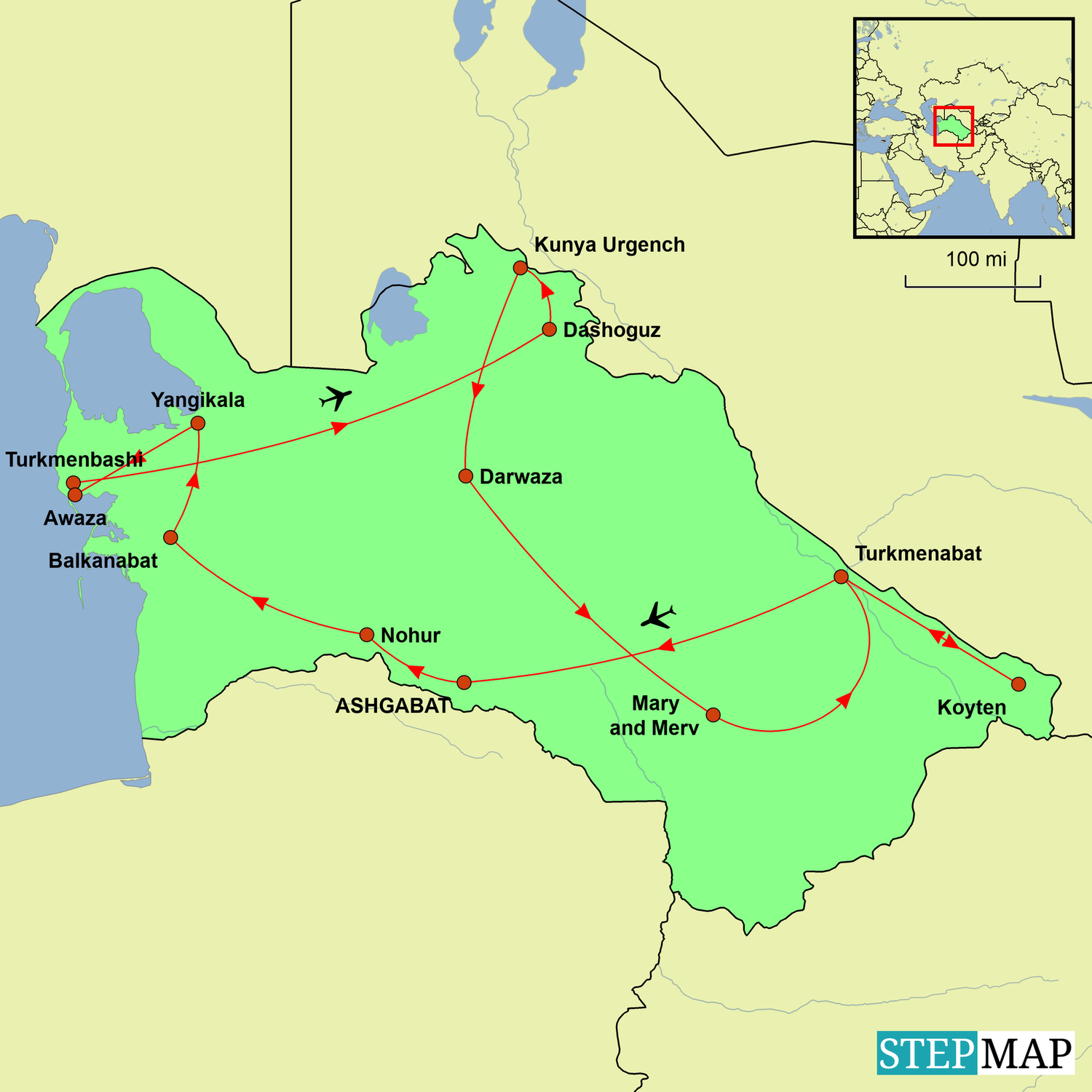
Price information
Check dates, prices & availability
Travel guides
Reviews
1 Reviews of Turkmenistan cultural tour, mysteries of the desert
Reviewed on 08 Oct 2016 by Jacqui Licht
1. What was the most memorable or exciting part of your holiday?
There were quite a few highlights in Turkmenistan: the dinosaur trail near Afghanistan, the fire crater, the old ruins of Merv, Konya Urgench, and more.
One day we were passing through a town and saw that there was a wedding. Everyone was so happy and wanted us to be happy with them and join in - so we did. Ashgabat itself is weird. The scale of the city is huge, not people-scaled at all. I don't think that there was any urban planning involved, just large avenues with monuments, government buildings or housing projects, with not a supermarket in site. This is all a result of the 1948 earthquake, where all was
destroyed, and what wasn't was too dangerous and was demolished.
2. What tips would you give other travellers booking this holiday?
Come with an open mind. The trip is not as tough as it sounds. It is a good idea to bring medicine for a dodgy stomach.
3. Did you feel that your holiday benefited local people, reduced environmental impacts or supported conservation?
Most of the time we stayed in state-owned hotels (I believe all the large hotels are in state hands), but there were two places where we stayed locally and ate
locally, so in those cases the locals benefited. Turkmenistan is not a place to worry about the environmental impact. Until recently electricity was free, and
even today 1 litre of petrol cost 1 Manat( = 23 p)!
4. Finally, how would you rate your holiday overall?
An unexpected treat. I have been to many countries, so relatively I cannot give it the highest score, but it was enjoyable and varied.
Responsible Travel
Planet
Turkmenistan does not see the same numbers of visitors that many other countries experience and as such some practices which we take for granted in other parts of the world may not be found here. We work closely with our suppliers to introduce concepts of environmental responsibility to the communities that we travel through. This can include asking hotels to implement practices such as asking guests if they need fresh cleaned towels each day, and reminding guests to turn off lights when they leave the room – small things that are standard practice in many places in the western world but not necessarily elsewhere. Most of the places that we stay in on this tour will take advantage of the excellent local produce, not only sustaining traditional communities but ensuring that unnecessary food miles are not made.This tour travels through some very remote regions, away from the well beaten tourist trail. Our guides will brief travellers on appropriate behaviour, both cultural and environmental, and when camping we make a point of ensuring that we leave no permanent traces of our stay behind, taking all rubbish with us. This is particularly pertinent in a desert environment where waste takes longer than usual to degrade in the arid climate. We are also careful not to place too much of a strain on fragile local resources that local people depend upon.
People
A highlight of this tour is the homestay at the small village of Nohur. We believe that staying in small village guesthouses and family homes not only gives travellers an authentic and very special insight into the lives of local people, but brings tangible benefits to small communities that may otherwise be overlooked by the tourism industry. Spending time with local hosts enables far more cultural interaction than travellers would experience when staying in large hotels. Travellers also have the opportunity to support local communities by purchasing local handicrafts.In our pre-departure information we include guidelines about photography. Although many people are happy to be photographed, others are not, and we emphasise to our travellers the importance of respecting people’s wishes.
Our philosophy is to only use small and locally owned suppliers, meaning that the income remains within the country and creates a real economic contribution. We also feel that the passion inherent within such suppliers means that your experience will be enhanced. We also try to engage with our suppliers on an equal basis – getting the lowest possible price usually isn’t the best outcome for local communities and is ultimately unsustainable. We aim to always treat our suppliers fairly and with respect; they are after all part of the key to our success and to us working together is much more than just a business arrangement, but an ongoing relationship that we aim to ensure truly benefits everyone involved.
We believe that tourism is a double edged sword that needs to be wielded very carefully. Our philosophy is to have a limited amount of departures – usually between one and three a year - for each of our itineraries. By limiting our presence in areas where local culture can be quite fragile, we hope to avoid as much as possible the phenomenon whereby an area changes in character due to repeated and prolonged exposure to tourism. We want to visit an area as friends, not intruders and to ensure that what we see will also be there for others to enjoy for many years to come.
We only employ local staff and unlike many operators we believe that to send a foreign Tour Leader along to accompany your trip is an unnecessary burden on your wallet and our carbon footprint. We believe that locals know best. Our local operators only use locally owned accommodation. This means your money stays in the area to benefit the local community. When possible we use local transport, (i.e. rail or bus) and we always use local restaurants, markets and shops and encourage our clients to interact both financially and socially with the communities that they are passing through. In doing this your travels are supporting and encouraging the development of local services.
We only work with operators who are as committed as we are to putting something back into the communities we visit. This may include giving a percentage of the profits from each tour to a foundation to help street children or local conservation projects.
Our groups average only six clients, and many tours operate on a private basis with just two travellers. This has much less impact when travelling through rural areas, reducing our environmental and social affects. Finally to emphasis our commitment to Responsible Tourism all clients will receive a copy of our Travellers Code of Conduct with their travel documents.
Popular similar holidays
Silk Road holiday, small group
From £4475 15 days excluding flights
Discover amazing Uzbekistan, Turkmenistan and Tajikistan
The five stans silk road holiday
From £6449 - £6949 23 days including UK flights
Step into the pages of history on a silk road tour
Uzbekistan & Turkmenistan holiday, Silk Road explorer
From £2999 16 days excluding flights
Discover the fascinating ancient history of the Silk Road











